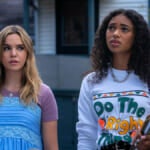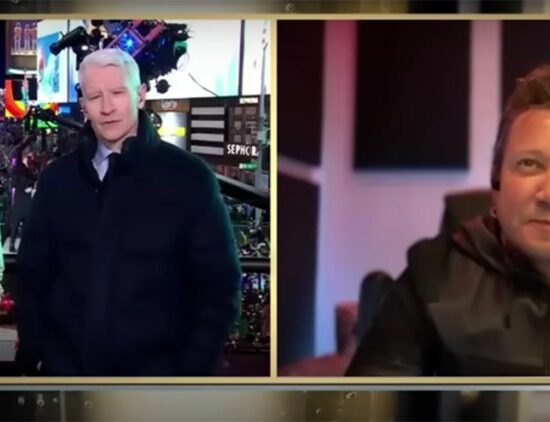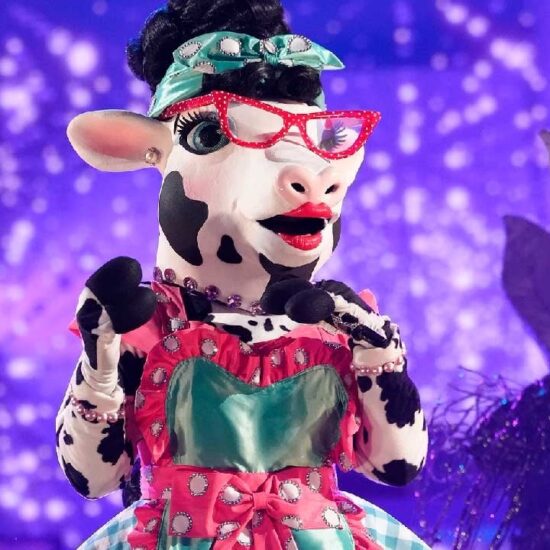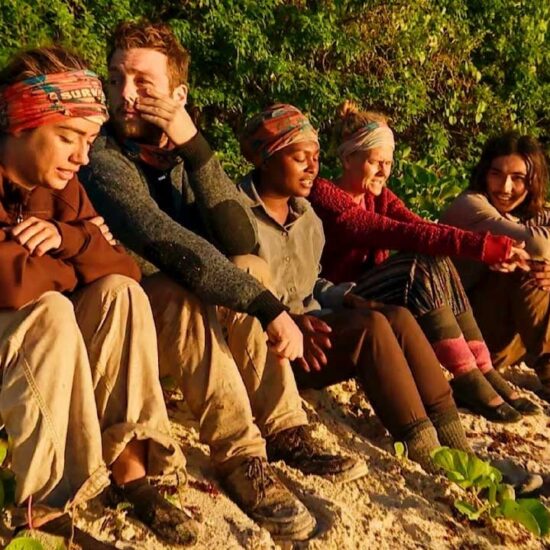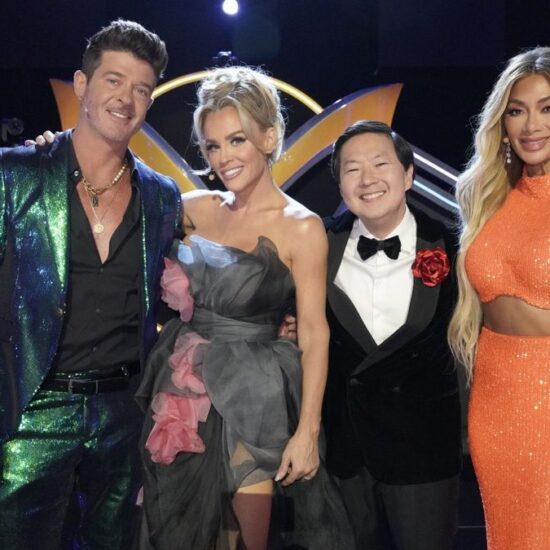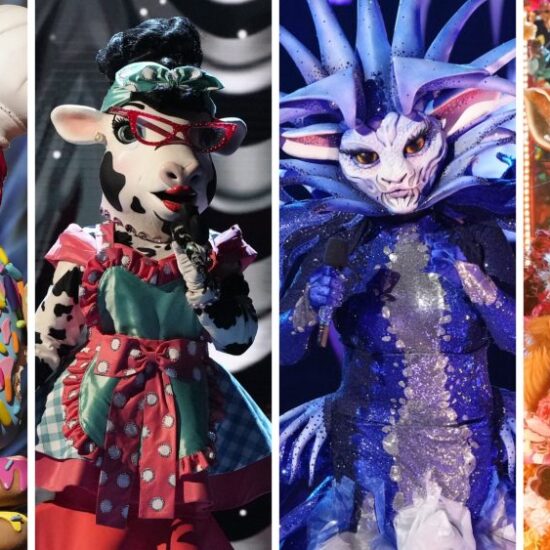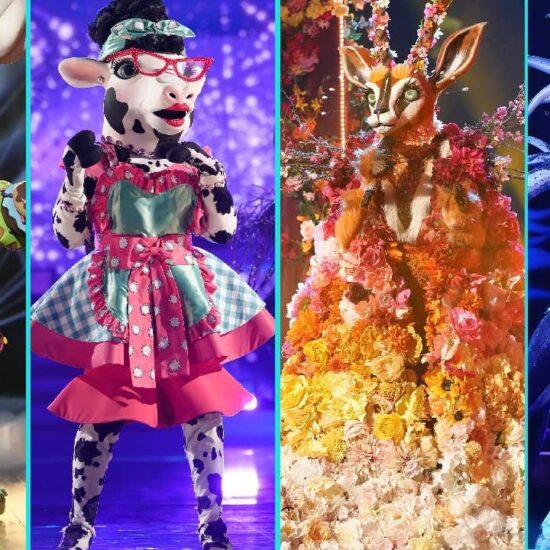
James Marsden’s return to “Westworld” in Season 4 came as a delightful shock to many fans given his character’s death back in Season 2, but the actor has known about his return ever since he was first killed off. Creators and showrunners Lisa Joy and Jonathan Nolan sat Marsden down at the beginning of the HBO sci-fi series’ second season to tell him the story arc for Teddy, including his character’s death towards the end of the season. But at the same time, they told Marsden Teddy would return in Season 4.
“They sat me down before we shot one frame of film on Season 2 and before I’d read one page of a script and said, ‘Here’s what you’re doing all through Season 2, and then you go away in Season 3 and you come back in Season 4,’ and I’m like okay, you all have the whole thing mapped out,” Marsden told TheWrap in a recent interview about his return.
“It’s pretty brilliant. I know that they’re constantly evolving along the way and there’s obviously the rewrites here and there and scenes get moved around in the editing room, so it’s definitely a fluid thing, but the story, the themes that they want to explore and the overall macro story has always been intact there. They’re definitely not going figuring it out along the way. It’s a very, very carefully planned, artistic journey.”
Read our full interview with Marsden to get the actor’s thoughts on his return, what it was like filming that “date” scene with Evan Rachel Wood, what it was like watching Season 3 from home and why he’s always been a “Westworld” superfan at heart.
You coming back was such a wonderful surprise. Take me back to when you first found out Teddy was going to die in Season 2. I know you’ve said that Lisa and Jonathan told you at that point, secretly, that you’d be back.
They did, yeah. So they were excited to detail and illustrate my journey for Teddy for Season 2. I hadn’t read the scripts yet so it was like, ‘Here’s your arc for Season 2. We’ve got a cool thing planned for you in Episode 5 where you get reprogrammed and you kind of become this killer. And then deep down Good Teddy reaches up and can’t go on this killing rampage with Dolores, and he ends his life.’ When I first heard that I went, ‘Oh, I’m done. That’s it for Teddy.’ And they said, ‘Yes, but you’re back in Season 4. We have a really cool idea for this beloved cast of characters and sometimes you’ve got to say goodbye to some of them so the audience feels like there’s true, genuine stakes that not everybody can cheat death. We’re gonna do it for the full season, but we assure you that you will be back, and I think the story that we want to tell, this is a big part of it. And if we do it right, when you come back in Season 4 people are going to be jumping out of their seats so happy that you’ve returned.’
So I was like, ‘Cool! All I want to do is serve that story. So whatever you need me to do. And yeah, I’m bummed that I won’t be joining you for Season 3, but excited for Season 4.’ So credit to them, I mean, they are the most kind and respectful and sensitive people. It was very, very cool of them to kind of go over the whole thing with me and say, ‘Hey, do not look at this as a negative thing at all. In fact, this is a very exciting thing, the story that we’re getting ready to tell.’
I just spoke to Lisa and I told her this as well, but this season it feels like a lot of things are really coming into clarity from earlier seasons that were maybe obtuse or just downright befuddling. So Teddy’s death and rebirth, going back to when it happened in Season 2, is just more proof that they know where they’re going, they have a grand idea for this story and are executing it in a really cool way.
Yes. I was going to add exactly that to my last answer, which is the fact that they sat me down before we shot one frame of film on Season 2 and before I’d read one page of a script and said, ‘Here’s what you’re doing all through Season 2, and then you go away in Season 3 and you come back in Season 4,’ and I’m like okay, you all have the whole thing mapped out. It’s pretty brilliant. I know that they’re constantly evolving along the way and there’s obviously the rewrites here and there and scenes get moved around in the editing room, so it’s definitely a fluid thing, but the story, the themes that they want to explore and the overall macro story has always been intact there. They’re definitely not going figuring it out along the way. It’s a very, very carefully planned, artistic journey.
It’s clear you’re in good hands. Although when you come back to work this season, your workplace is like in a brand new building with a different name. It doesn’t look anything like the “Westworld” you were accustomed to. What was it like stepping back into the story for this radically different season?
Yeah I guess that’s kind of one of the fun things about “Westworld” is that they use their actors as actors, right? They allow so many of us to play different roles, essentially, whether you’re called the same character name or not. Teddy got reprogrammed in Season 2 and was a completely different person, and then Dolores was a completely different person in Season 2 than she was the beginning of Season 1. So it’s almost like you get to play several different characters embodying one person. So that’s fun. And that’s kind of what this season is feeling like. There should be a familiarity, obviously. The audience is gonna notice him and there’s a reason why when we meet, I’m picking up her lipstick, right? This is the beginning of their loop, so to speak.
But we’re dressed in contemporary clothes and speaking in contemporary dialect. I drop the sort of cowboy drawl thing, and Lisa was like, ‘I want this to feel like two modern day people going on a date.’ And you watch the scene, and she doesn’t know him, but there’s some connection that she can’t define. Some feeling of deja vu. And this time the roles are reversed. He has more awareness of the world around him and she may or may not have these memories there.
So that’s the feeling we want the audience to have, and it’s fun to play because Teddy, the first season, was just blank, right? Not blank, but it was he was on his narrative loop and there were boundaries that he couldn’t get past. There was no existential crisis until Dolores sort of helped him out with that. And now I’m the one going in and sort of peeling back the layers for her. The purpose and what he’s trying to get at, obviously, those questions aren’t answered just yet. But as an actor, I approached it as I want this to feel like an old friend. I wanted it to feel like a memory, seeing them together. And he’s someone in this world that’s still somehow confusing to her, but that she feels calm around, and that she trusts, even if the things coming out of his mouth sound ludicrous at first. He helps her realize her powers within this world as well. It feels like Teddy but it’s totally different. I’m allowed to have the sort of emotional and intellectual depth now.
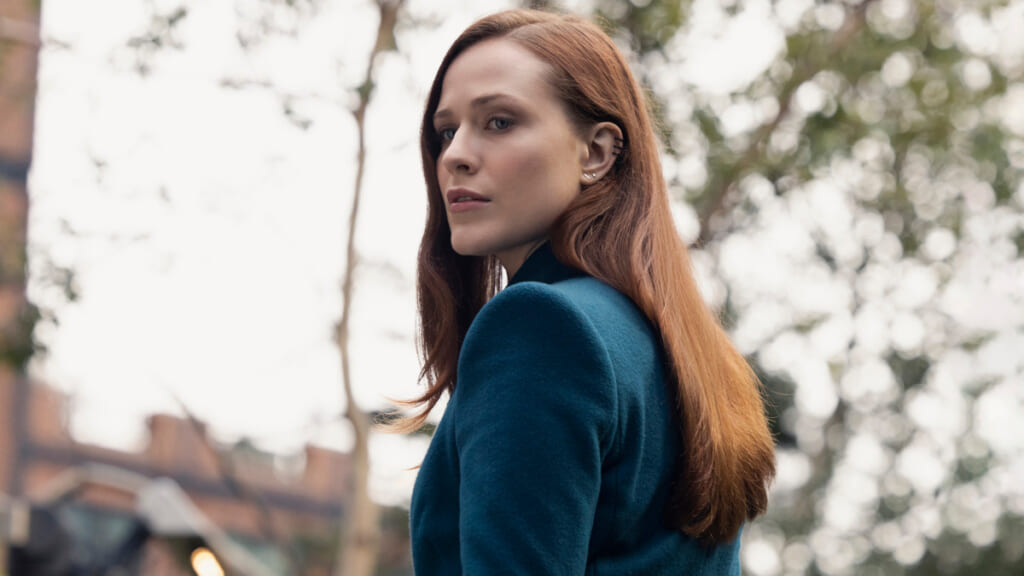
What was it like working with Evan again with this very different dynamic? Teddy is kind of training Neo from “The Matrix” here.
That’s what I was gonna say, there’s a very “Matrix”-like quality to it and I’ve heard that from a few other people. It’s just a fun, different flavor to play. We just have so much fun on set and have a great sort of comfort with each other. There’s a familiarity there, we’re just like best buds, brother and sister. And when we both show up on set, we know exactly what the scene is about and what’s the intention of the scene. For me, there’s nothing more fun than watching Evan play “existential realization of awakening,” or whatever you want to call it, she just speaks paragraphs with her eyes without saying a word. I’m just like, “How do you do that? You’re so damn good!” When there needs to be vulnerability or confusion or anxiety, it’s like she’s got all 88 keys of a piano in her eyes. So it’s just fun to be the one sort of pulling her out and laying out a path for her, and watching her see it unfold in front of her. It’s just so much fun to watch. And hopefully the audience feels the same way.
This season, we’re not like riding around on horses doing our narrative loop talk and we’re also not full-on Terminator killing machines. We’re getting to look into each other’s eyes, and it feels as an actor that there’s a more human element to it.
It’s becoming clear that Lisa and Jonah are really telling the history of the evolution of AI from beginning to potentially end through the arc of this series. But for you, as actors, that means playing robots, for lack of a better word, who have lived decades and centuries and have seen civilizations rise and fall and have seen the worst and the best of humanity, which gives your character that much more complexity, I would think, to play.
It’s unlike any other job I’ve ever been a part of. There are moments where you can just be as loose and comfortable and natural and human as possible, like the date scene. And then there’s moments like at the end of Season 2 where you’re just a complete killing machine. At the end of it all you are the sort of sum of many different existences, so going in and sort of carefully selecting which of those experiences register and which of them are deprogrammed. Or which ones sort of stay to inform who you are and what actions you take. It’s a really fun and challenging exploration.
What was your experience like watching Season 3 having not read the scripts or been a part of the production?
It was strange for sure, but it wasn’t so different than any of those seasons I was in, to be honest. Just because there’s so many storylines, there’s so many different subplots, so when I’m watching a season that I’m even in, I’m still shoveling popcorn in my mouth, eyes wide open, like, what happens next? I’m always getting surprised. I always feel like I watch it as a fan first. Even since Season 1, there’s the same feeling when we get the scripts. It’s like, ‘Oh my God.’ I remember calling Evan at the end of Season 1 when they who Wyatt is, and how it ends with Anthony Hopkins’ character, and we called each other like, ‘Holy sh-t!’ We’re like super fans at heart. I still I always feel like I’m watching something new and surprising. And you read the scripts, but you never see the other scenes that you’re not in getting shot.
So I guess it wasn’t that different, but my fanboy inside for “Westworld” started kicking in during Season 3. It was weird, but it wasn’t too weird. Because it always feels like there’s a separation from myself. It’s one of those shows and projects that you feel like, ‘Oh man, I’m a cog in this really amazing and complex wheel,’ and I get to sit back and just enjoy it.
I think the audience and the fans are gonna dig kind of where we’re going with this season. I’d say these last couple episodes are probably a little bit of the calm before the storm.
This interview has been edited and condensed for clarity.
“Westworld” airs Sunday nights on HBO and is streaming on HBO Max.







